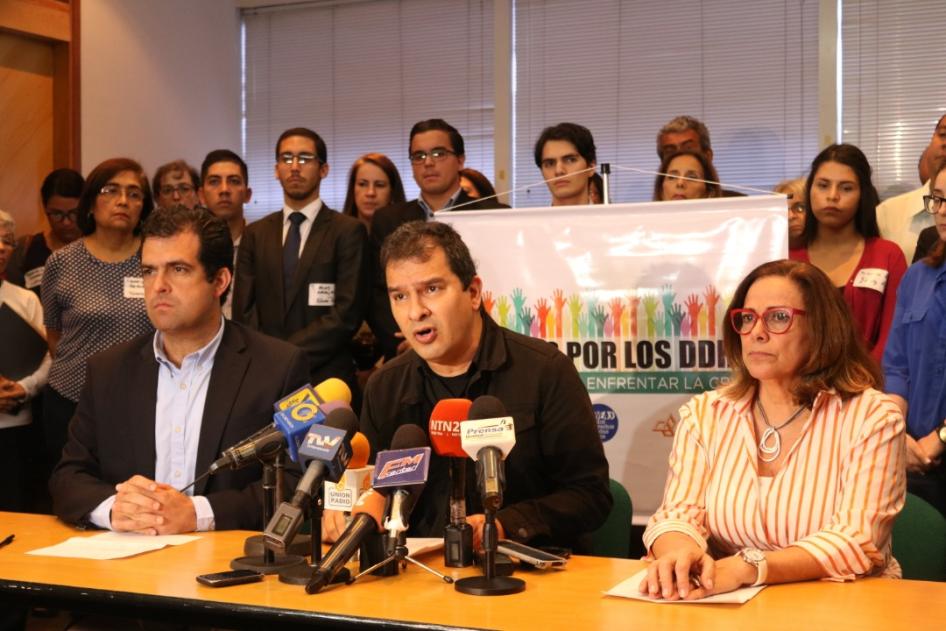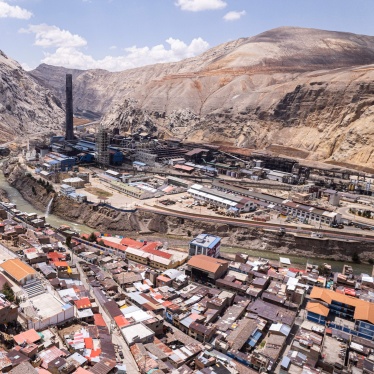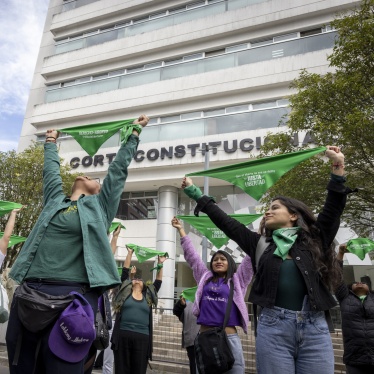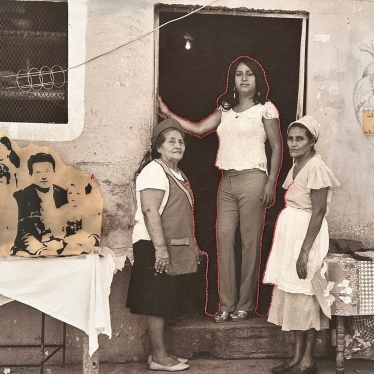Nicolás Maduro’s government has launched a vicious smear campaign against one of the top human rights organizations in Venezuela. This isn’t surprising, given how the government has been expanding its crackdown on critics, opponents and journalists, precisely when Venezuelans need human rights defenders the most.
The prestigious human rights organization, Provea, has been exposing human rights violations in Venezuela for decades and has taken a principled and firm stance documenting abuses under all administrations, including Maduro’s—despite the sacrifice and enormous personal risk for its brave staff in the current environment.
On May 4th, during a national broadcast, Maduro accused Provea of receiving money from the U.S. Central Intelligence Agency and of defending the rights of accused “terrorists” and “mercenaries” who, he claimed, “are part of Donald Trump’s security forces.”
Maduro was referring to people arrested on May 3rd; Interior Minister Néstor Reverol said that Venezuelan Armed Forces had blocked an invasion attempt by sea of “terrorist mercenaries from Colombia.” According to Communications Minister Jorge Rodríguez and ANC president Diosdado Cabello, eight people were killed, while 23 individuals were detained as of May 7th, in relation to the attempted attack. Two detainees are U.S. citizens and former U.S. Special Forces soldiers.
In response to these developments, and given the deplorable record of Venezuelan security forces, Provea tweeted that “the human rights of those detained should be protected,” adding that their organization will “only support and promote constitutional, peaceful and civil means to restore the country’s democracy.” Because Maduro has shut down all channels for peaceful conflict resolution, Provea said, they considered him “responsible for any politically motivated violent act in the country.”
Other officials quickly endorsed Maduro’s inflammatory and threatening remarks about Provea. Cabello accused Provea of “justifying terrorism” and of serving the interests of “U.S. intelligence bodies” on the website of his TV show “Con el Mazo Dando,” and on its Twitter account. Also, Maduro’s ambassador to the European Union compared Provea’s statements to Nazi propaganda.
Under international law, governments need to ensure that human rights defenders can pursue their legitimate activities without reprisals, threats, intimidation, harassment, discrimination, or unnecessary legal obstacles. The Inter-American Court of Human Rights held in 2003 that “[r]espect for human rights in a democratic state depends, to a large extent, on effective and adequate guarantees enjoyed by human rights advocates to freely conduct their activities, and special attention should be paid to actions limiting or hindering, whether directly or indirectly, the work of human rights advocates.”
None of this happens in Venezuela.
The importance of groups raising concerns about possible human rights violations in a country where security forces have a track record of committing egregious abuses—like arbitrary arrests and torturing detainees, executions, and enforced disappearances—with almost absolute impunity, cannot be overstated. This is exactly what Provea does, and it’s precisely what led to the vicious response.
Likeminded governments and international human rights monitors concerned about restoring the rule of law in Venezuela need to react strongly, unequivocally stating that reprisals against Provea staff and other Venezuelan human rights defenders for doing their work are off-limits. Without this response, there’s a huge risk that Maduro and his cronies will escalate their attack from verbal abuse to punitive actions, assuming they have a green light to do as they please.
An international community that’s closely watching what happens in Venezuela needs to send the message loud and clear: subjecting human rights defenders to politically motivated prosecution, detention or other abuses would be crossing a line for which those responsible will have to answer.
Venezuelan Human Rights Group Under Attack
Human rights NGO Provea finds itself the target of a barrage of accusations by the Maduro regime. The crime? Advocating for due process and basic rights
Published in:
Caracas Chronicles
Your tax deductible gift can help stop human rights violations and save lives around the world.
Most Viewed
-
November 25, 2019
A Dirty Investment

-
June 24, 2022
Q&A: Access to Abortion is a Human Right

-
April 9, 2024
Gaza: Israel’s Imposed Starvation Deadly for Children
-
March 29, 2021
“Everything I Have to Do is Tied to a Man”

-
September 3, 2019
“Don’t Punish Me for Who I Am”






